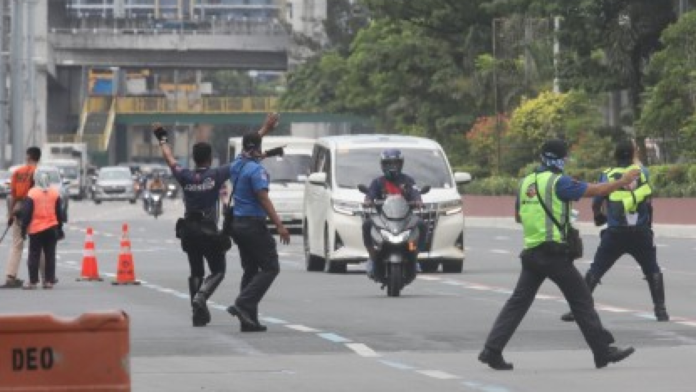The Metropolitan Manila Development Authority (MMDA) requested the Land Transportation Office (LTO) to temporarily lift the tagging and alarm of vehicles apprehended under the No Contact Apprehension Policy (NCAP) following the issuance of a temporary restraining Order (TRO) by the Supreme Court late last month.
In his letter to LTO’s service provider Stradcom Corporation, MMDA acting Chairman Carlo Dimayuga III said a significant number of motor vehicle owners and/or buyers whose vehicles are tagged and placed under an alarm with the LTO under the NCAP cannot renew and/or transfer the registration of their motor vehicles since their payment for fines cannot be accepted.
“Without violating the Supreme Court TRO and with the higher interest of public service, the MMDA hereby requests the Stradcom Corporation to temporarily lift the tagging and alarm of the affected motor vehicles under the MMDA’s NCAP,” Dimayuga said in his letter, shared in a news release on Sunday.
“This will allow the owners and/or buyers to renew and/or transfer their registration with the LTO,” the request added.
Dimayuga emphasized that the request is without prejudice to the final decision of the Supreme Court and shall be reinstated if and when the high tribunal affirms the legality of the NCAP.
Also covered by the temporary lift of alarm and tagging are vehicle owners apprehended by the MMDA NCAP who have yet to settle their fines even before the Supreme Court issued the TRO on August 30.
Since the temporary suspension, the agency has immediately suspended its implementation of the NCAP, including collection of fines until further notice.
The TRO stops the implementation of NCAP-related programs and ordinances and any apprehensions through the said policy and ordinances “shall be prohibited until further orders from the Court.”
The order also stops the LTO “and all parties acting on its behalf from giving out motorist information to all government units, cities, and municipalities enforcing NCAP programs and ordinances.”
Oral arguments on the case are scheduled starting Jan. 24, 2023. (PNA)


